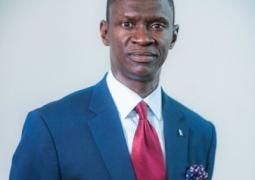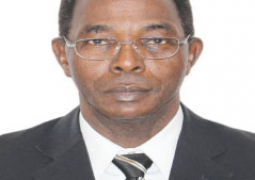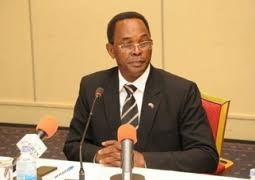
The upkeep of underperforming SOEs has been piling pressure on revenue generated from other sources of the economy. It has therefore been thought wise to relinquish some ownership and control of such SOEs to the private sector to curtail subsidies to them.
In the 2024 National Budget, the Finance minister highlighted the intention of government to free up some fiscal space (removing those things that are not economically viable) in order to bolster growth.
“In a bid to free up fiscal space and bolster growth,” the Minister affirms, “a series of PFM related reforms have been implemented. These reforms will address fiscal risks emanating from underperforming State-Owned Enterprises (SOEs), and weaknesses in public procurement processes; and increase the strategic focus on domestic resource mobilization efforts. ”
He explicitly states: “On the SOE reform agenda, the government will continue to roll-out performance contracts to SOEs under the supervision of the Directorate of SOEs. Of the 13 SOEs, 4 have signed performance contracts with the Ministry of Finance and Economic Affairs and the remaining 9 to follow by 2024. Similarly, in ensuring that legal, financial and operational governance framework of SOEs respond to the requirements of modern day SOE functions, a new SOE Act has been promulgated.”
To this end, in the course of this year, Government authorities have started showing commitment to overhauling the SOE sector, bolstering domestic resource mobilization, and advancing governance reforms, in line with recommendations from the IMF.
While directors of the IMF Executive Board have emphasised the importance of further streamlining tax incentives and fuel subsidies, addressing fiscal risks from state-owned enterprises, and enhancing public financial management, the IMF Deputy Managing Director and acting Chair, Mr Bo Li, states in the IMF’s latest report on Gambia: “To firmly put public debt on a downward trajectory, it is paramount to implement the planned medium-term fiscal strategy, including further streamlining of tax incentives and fuel subsidies, rationalization of subsidies to state-owned enterprises, and better prioritization of public investment projects. The authorities are committed to overhaul the SOE sector, bolster domestic resource mobilization, and advance governance reforms, in line with the recommendations from an IMF governance diagnostic mission.”
The government has therefore resolved to finding possible solutions to fix the underperforming SOEs in the public sector.
A case in point is Gamcel, 60% of which is to be put up for sale to the private sector. This development confirms that some SOEs have not been doing so well, thus they need revitalization and reposition as the budget statement says: “In an effort to revitalize and reposition GAMTEL/GAMCEL, the Ministry is drafting a National Fibre Protection Policy to address the network interruptions caused by frequent cuts on the national fibre backbone. The Government is supporting GAMTEL’s network upgrade and expansion initiatives geared towards enhancing inclusivity, providing adequate redundancy, and building resilience. To achieve this, the Government will restructure GAMTEL and privatize GAMCEL in a bid to attract and induce the much needed capital to help revive the sector and restore its competitiveness.”
While we may take the rationale behind the privatization of SOEs advanced by the authorities, we are also left with considering the view and conviction that SOEs are always doomed to fail because they are owned by the state (the nation) and so no one cares much whether they fail or succeed.
Actually, it is not only the ‘soft budget constraint’ problem that has to do with underperforming SOEs, as they sip subsidies or bailouts from government while they underperform. There is more to it than meets the eye.
Among others, there are also the ‘principal-agent problem’ and the ‘free-rider problem’ that affect the performance of SOEs.
While there is a fundamental information gap - leaving many things not properly explained, arranged, or organised - between the owners (the principal) and the workers (the managers/agents) of enterprises, which is the ‘principal-agent problem’, there is also the ‘free-rider problem’, which talks about the unconcerned approach by the citizens who theoretically own the public enterprises.
For this, referencing an economist and author Ha-Joon Chang would give a thorough succinct picture of the free-rider problem:
Ha-Joon Chang states: “Individual citizens, even if they theoretically own the public enterprises, do not have any incentives to take care of their properties (the enterprises in question) by adequately monitoring the hired managers. The problem is that any increase in profit resulting from the extra monitoring of the SOE managers by some citizens will be shared by every citizen, while only those citizens who do the monitoring pay the costs (e.g., time and energy spent in going through company accounts or alerting the relevant government agencies to any problems). As a result, everyone’s preferred course of action will be not to monitor the public enterprise managers at all and simply to ‘free-ride’ on the efforts of the others. But, if everyone free-rides, no one will monitor the managers and poor performance will be the outcome. The reader will immediately understand the ‘free-rider problem’ if he tries to recall how often he himself has monitored the performance of any of his country’s SOEs (of which he is one of the legal owners).”
And what makes these cited problems very important to consider in state or corporate governance is that they happen with both SOEs and private-owned enterprises. And the economy is harmed. The rest is for another day.
Read Other Articles In Opinion




